It’s our privilege to have interviewed Mr. Ian Hallam; two Olympic Team Pursuit bronze medals, a Worlds Individual Pursuit silver, a Worlds Team Pursuit silver, two Commonwealth Individual Pursuit golds, a Commonwealth Games Team Pursuit gold, Commonwealth bronze in the Kilometre and 20 Kilometre, and 25 British track titles.
A British Road Race Championship silver as a junior and two bronzes as a senior, two Milk Race stages, a stage in the Olympia Tour and too many domestic road and criterium wins to count.
And best not forget third in the RTTC ‘25’ Championship behind King Alf and specialist tester Dave Holiday.
Retirement from cycling then competing at a high level at the World Windsurfing Championships, finally coming back as a ‘Master’ to win 15 World titles…
We had to hear about it all from the man himself.
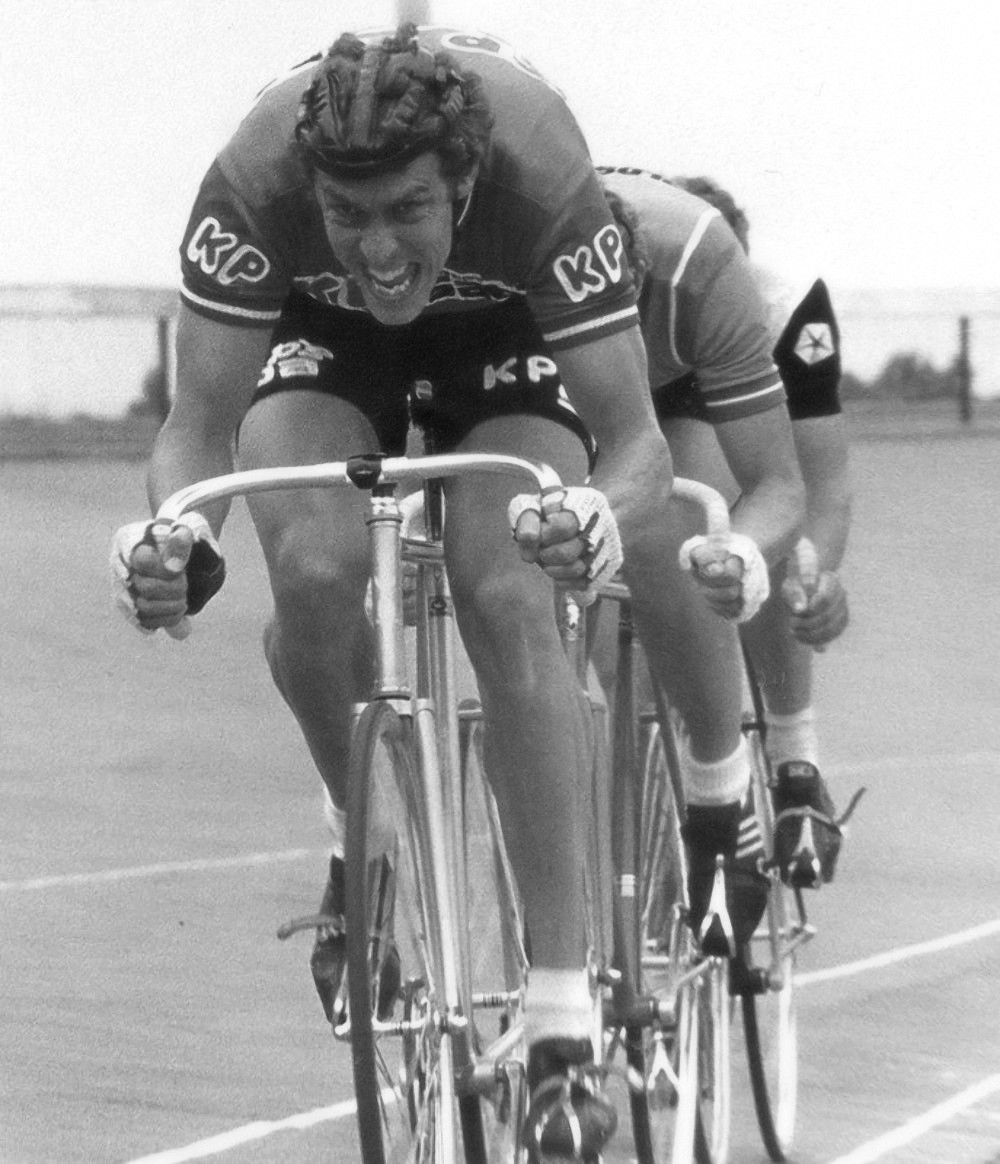
You took silver in the ’66 National Junior Road Race Championships; does that one still rankle?
“I had three great opportunities to win the National Road Champs.
“In 1966 the late Phil Edwards was the favourite (he won it the following year). Phil attacked several times but was brought back.
“It was a bunch coming into the finish and on a small rise with about 400 metres to go Don Parry jumped and got a gap and I didn’t have the confidence to react straight away – I was closing fast at the line but it was too late. At the time I was delighted to get a silver but realised after that I could have won.
“As a senior, in 1972 the Nationals were held at Lancaster and I had won the Lancaster GP the previous year. Phil Griffiths and Doug Dailey attacked and I was too far back the bunch to react. I knew that I should have gone after them but hesitated.
“They opened a two minute gap before I attacked and went clear on my own – I chased for the last 20-odd miles and closed to about a minute but had to settle for a bronze.
“Again in 1974 I won bronze but this time it was bad luck. I was flying and was in the winning break with Bill Nickson, Willi Moore and Tony Gornall.
“Bill attacked on a climb with about a mile to go. I reacted but my back wheel jumped and a spoke broke. The wheel was rubbing on the brake blocks and the tyre on the chainstays but it was too late to change bikes so I chased and got back. In the sprint I was beaten by Bill and Willi. I’m sure that without the broken spoke I would have won the sprint.
“So looking back, yes, it does rankle that I didn’t win a road champs.”
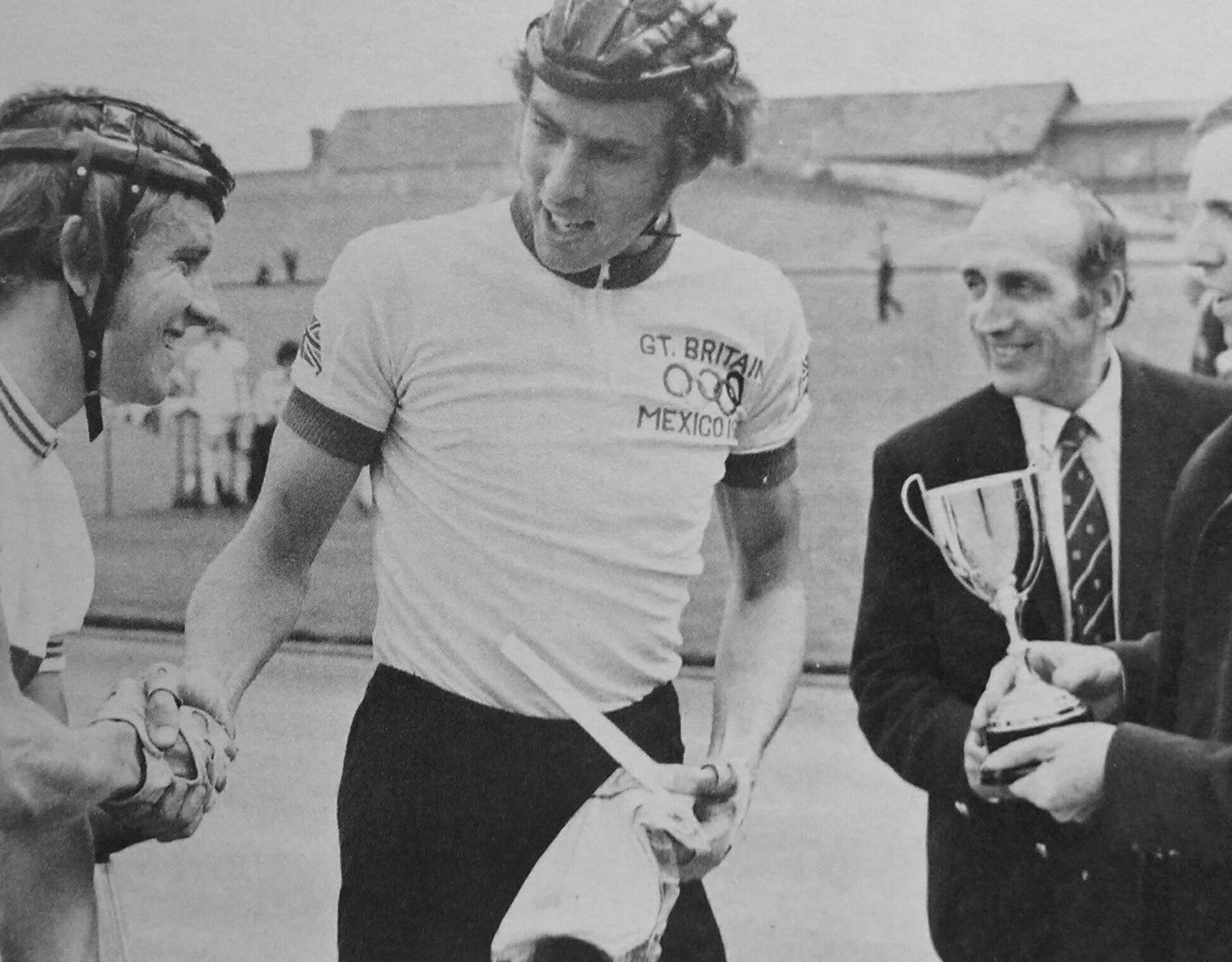
You rode the Olympics in 1968, a huge experience for a young man – your memories?
“It was a dream come true.
“As a 15-year old, in 1964 I watched the Olympic Individual Pursuit on TV from Tokyo where the Czech riders, Jiří Daler won; I thought how I would love to do that.
“Also as a 15 year-old, I watched Hugh Porter ride a Pursuit against Harry Jackson at Harvey Hadden Stadium, Nottingham, and loved his smooth style. I wanted to be like Hugh!
“I had been aiming for the Olympics since Norman Sheil started coaching me – the basis of my training interval training and when I was sprinting I imagined that it was the last lap of a Pursuit final.
“When Norman first offered to coach me, I wasn’t sure that I could combine racing at that level with my studies but Norman convinced me that by adopting interval training, I could combine that with studies.
“So to get selected for the Olympics four years after watching that Pursuit final was incredible. I was 19 years-old, very shy and was overwhelmed by the whole experience of the Olympics – it was my first international and the first time abroad.
“Because Mexico was at 7,500 feet, we had to travel out early to acclimatise. It meant seven weeks out of University – I missed an important exam but they set another when I returned for me and another dental student who was an athlete and was selected for the 200 metres. I suppose it was good prestige for the University
“I was selected for the Team Pursuit but we rode a pre-Olympic competition and I beat Brendan McKeown, the national Pursuit champion, by three seconds and so I was selected for the Individual Pursuit as well.
“In that pre-Olympic event, I rode against a Dutch rider and beat him by six seconds… his name was Joop Zoetemelk.
“In the Individual Pursuit I was really nervous – I broke the previous Olympic record but was well off qualifying; 15th fastest with 4:50:62 to fastest qualifier Xavier Kurmann of Switzerland’s 4:40:41.
“Kurmann ended up with bronze, the Frenchman Daniel Rebillard ran out winner from Mogens Frey of Denmark.
“We were 12th in the Team Pursuit with 4:28:49 to the Italians as fastest qualifiers with 4:16:10. The Italians ended up bronze medallists with the Danes winning from the West Germans.
“I remember feeling really disappointed afterwards – I thought to myself that in four years I really want to win an Olympic medal.”
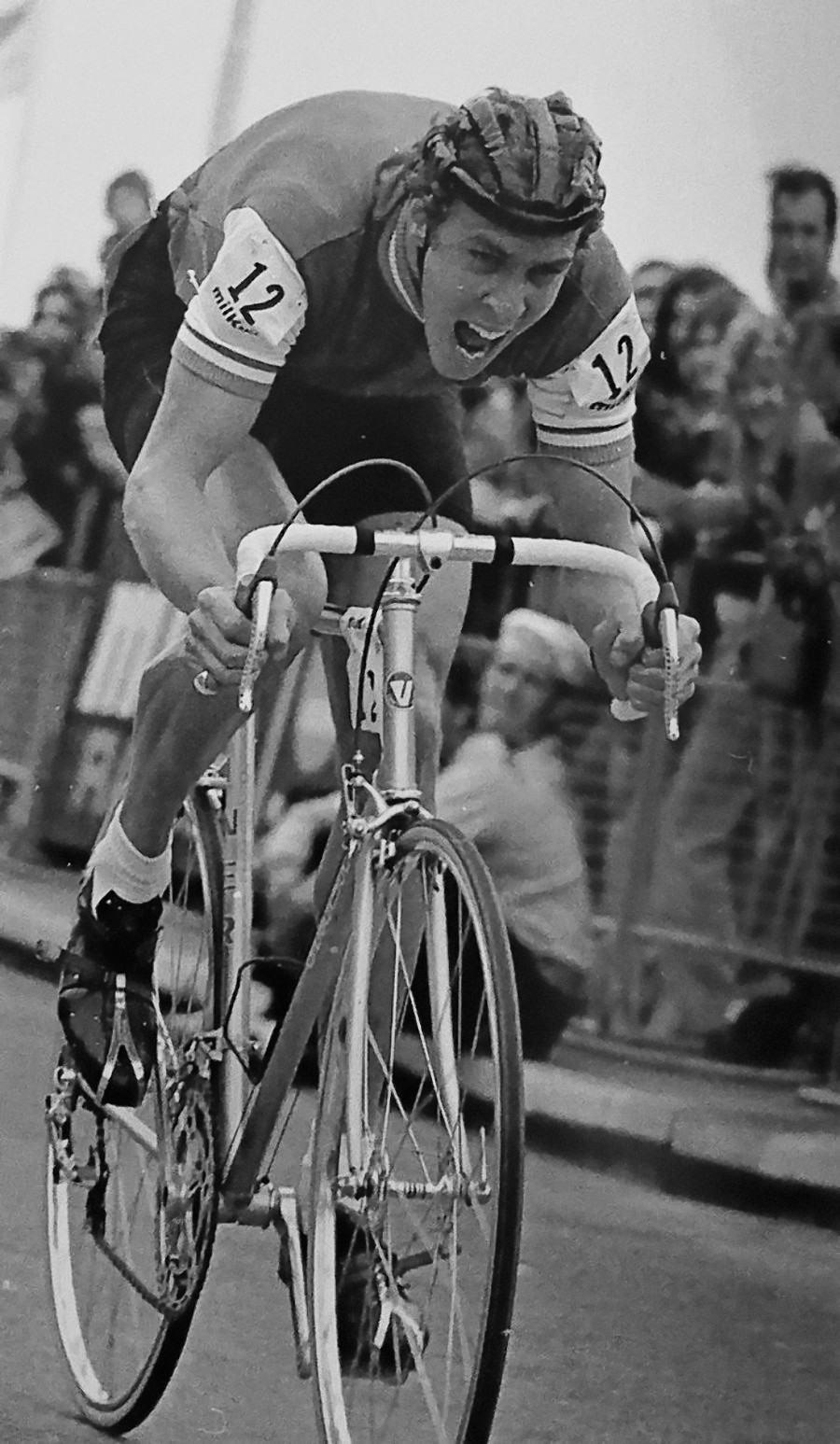
The Commonwealth Games in Edinburgh 1970 with gold in the Pursuit then Worlds Silver at Leicester that same year, those were massive results for a British rider of that era – is it true they were achieved on minimal training?
“Yes, I was a full time dental student and my training was 30 minutes interval training per day (for cardio-respiratory fitness and speed) plus longer rides and road races at weekends for stamina.
“At the time it was revolutionary but as you know it is common now.
“I rode against a young Danny Clark in the final of the Games in Edinburgh and then to ride the Worlds at Leicester was great.
“I came up against Mexico Olympics bronze medallist Xavier Kurmann in the final; he had ridden four seconds faster in the semi so I knew that I couldn’t beat him.
“But I was so proud to win silver in front of a home crowd; my hero Hugh Porter won gold in the pro Pursuit and the late Beryl Burton won bronze in the women’s Pursuit.”
The Olympia Tour in The Netherlands, a race which obviously suited you; three top four finishes and fifth on GC in ’72 and a stage win in ’73 – and is it true you won that stage with a broken top tube?
“I loved the Olympia Tour; fast racing and echelons, where you had to get to the front and force your way into the echelon. The Dutch riders didn’t usually let foreigners push in but they seemed to respect me and I was accepted.
“It was in an era when there were great Dutch amateurs, such as Hennie Kuiper, Zoetemelk, Jan Raas, the late Gerrie Knetemann and late Fedor den Hertog.
“In 1973, I was eighth overall and with about 20km to go into Amsterdam my steering went funny and I noticed that my top tube was broken just behind the head tube. I couldn’t get out of the saddle so round every corner I lost ground; I knew that if I changed bikes I would lose my place on GC.
“There was a corner with about 500 metres to go and – in the saddle – I closed the gap to the group and caught them with about 300 metres to go – there was no chance of easing and then trying to sprint so I just flicked across to the other side of the road and when I looked behind there was only Piet Van Katwijk on my wheel.
“I nearly went the wrong side of the coned-off lane for the vehicles but to my luck Piet went the wrong side.
“I couldn’t believe that I’d won!
“Of course, it was a big story in the Dutch press.”
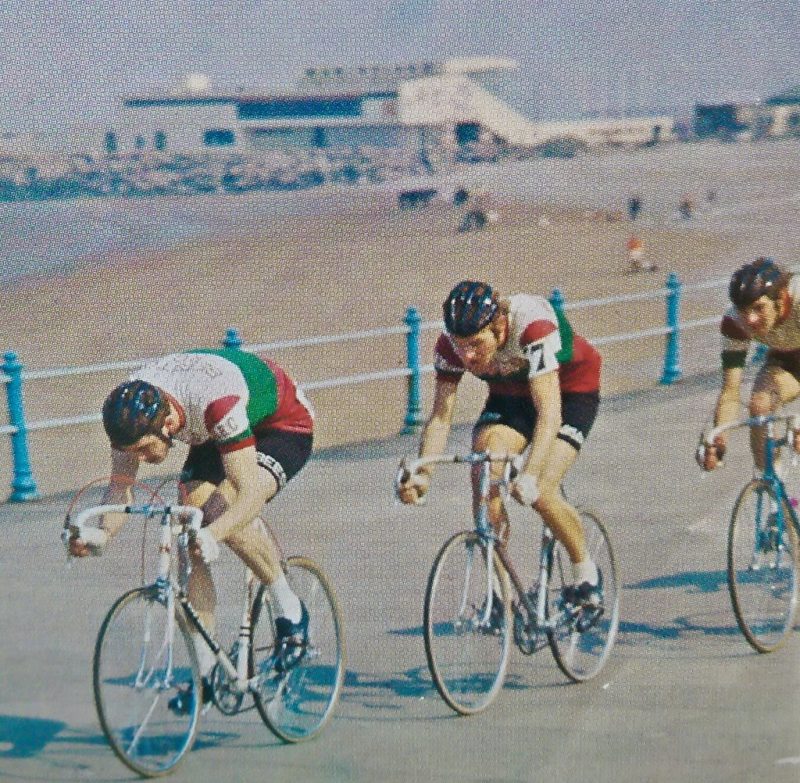
Did those results attract any attention from continental pro teams?
“Yes, but I didn’t really follow them up because I had my profession as a dental surgeon.”
The Munich Olympics and Team Pursuit bronze, though it could have been better but for an ill-timed puncture?
“We were absolutely thrilled to get a medal, the first Olympic cycling medal since 1956.
“We were unlucky with the puncture in the semi-final against West Germany and were not beaten by much, but we never really thought we could beat the West Germans.”
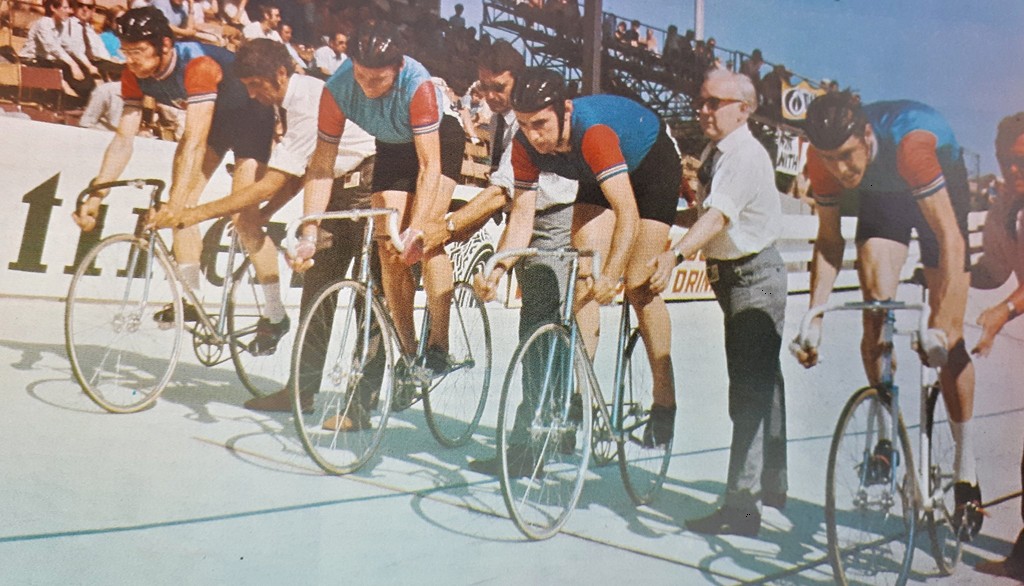
The ’73 Worlds; are you still happy with your decision not to accept the rainbow jerseys after the Germans crashed in the final and were DNF?
“There are two answers to that.
“At the time it was absolutely the right thing to do – we were well beaten going into the last lap and the Germans crashed, not because of any fault of their own but because of an official getting too close to the edge of the track.
“Officially they could not be World Champions because they did not finish.
“But we just couldn’t accept the title – it was morally wrong and the decision was unanimous; and we thought that we would have the chance again to win…
“For many years I had no regrets about the decision.
“However, the second answer, is that in sport you have to accept good luck as well as bad luck and I’m sure no other nation would have done what we did; in the record book we would have been down as World Champions and no-one would remember the circumstances.
“More recently I have thought that I was never a World Champion, and I think that perhaps I was good enough to have been.
“So from that point of view, I do regret it.
“However, I don’t think that I would have been proud to say that I was a World Champion and I do think that it is better to be proud of your achievements and do the right moral thing.”
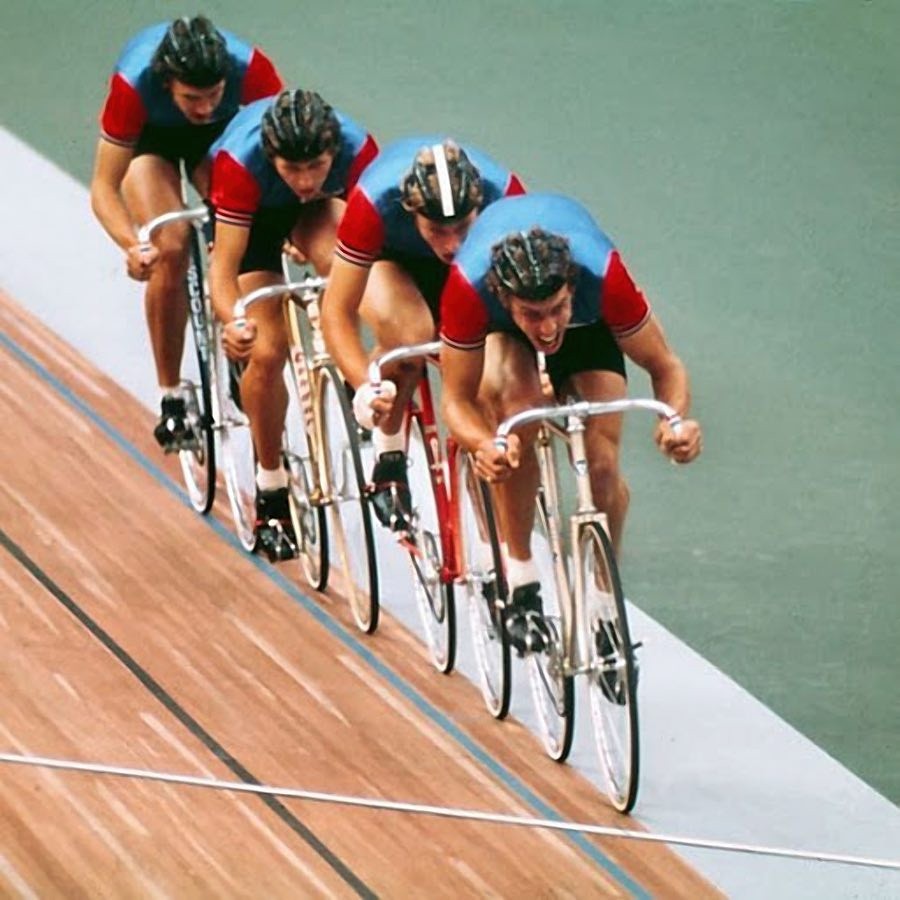
The ’74 Commonwealth Games; a terrific campaign with two gold and two bronze medals – your recollections?
“As a team, this was the most satisfying achievement of my career.
“We had such great morale and we all fed off each other. We had such a great time and had fun off the bike as well.
“The only rider in the track team not to win a medal was Maurice Burton, so I felt really sorry for him.”
Montreal and the ’74 World must have been a huge disappointment, you broke a spoke, punctured and crashed when on a record time against the Czechs in the semis – your memories?
“Yes, we were devastated.
“We probably had the best team ever, with Steve Heffernan, Mick Bennett and Willi Moore – I think that we could have beaten the Germans.
“I rode the Individual Pursuit as well and was just beaten in the quarter final by Didi Thurau.
“It was won by Hans Lutz who I had beaten earlier in the year but my focus was the Team Pursuit – we had worked for this since 1970.
“So a real disappointment – and it brought it home to us after 1973 that you have to take good luck when it comes your way because bad luck can strike as well!”
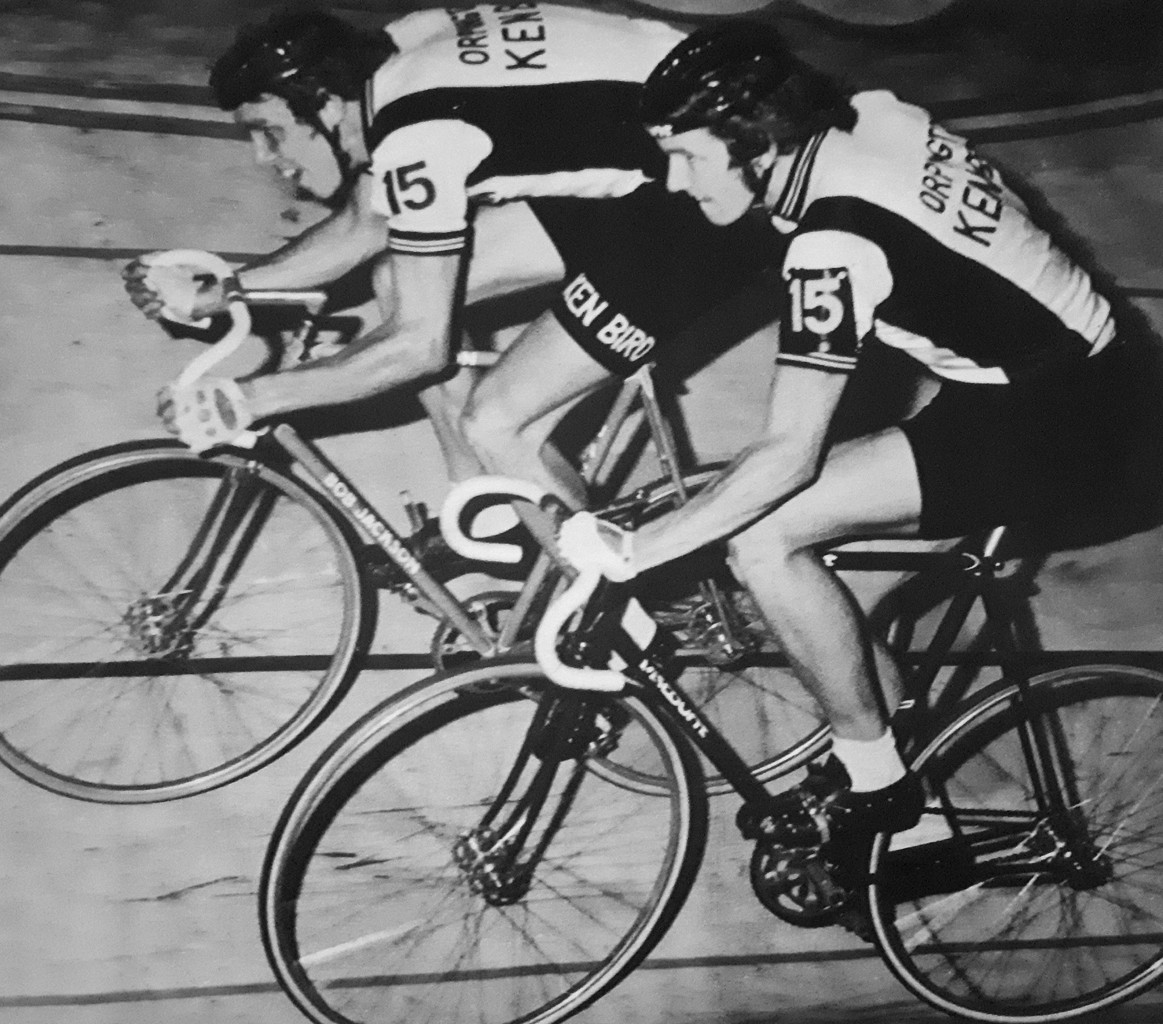
But Olympic bronze in Montreal ’76 – however, when we interviewed Ian Banbury he told us; ‘we didn’t go to get a bronze medal’…
“It was a different team in 1976, with just me and Mick Bennett from 1972 plus Ian and Robin Croker.
“We came up against the Germans again and faced the East Germans in the ride for bronze. I think bronze was probably the best we could have achieved.
“It would be another 16 years before GB won another Olympic cycling medal.”
You were to lose to a medal in the Worlds Points Race in ’77, recollections?
“It was the first World Points Race Championship and I rode it with Tony Doyle.
“I was leading and Tony was second on points, we were dominating then three riders broke clear and nobody would chase.
“Despite Tony and me giving everything to chase, they gained a lap, leaving us fourth and fifth with more points than anyone, but that’s what Points Races are about.
“I was really disappointed not to win.”
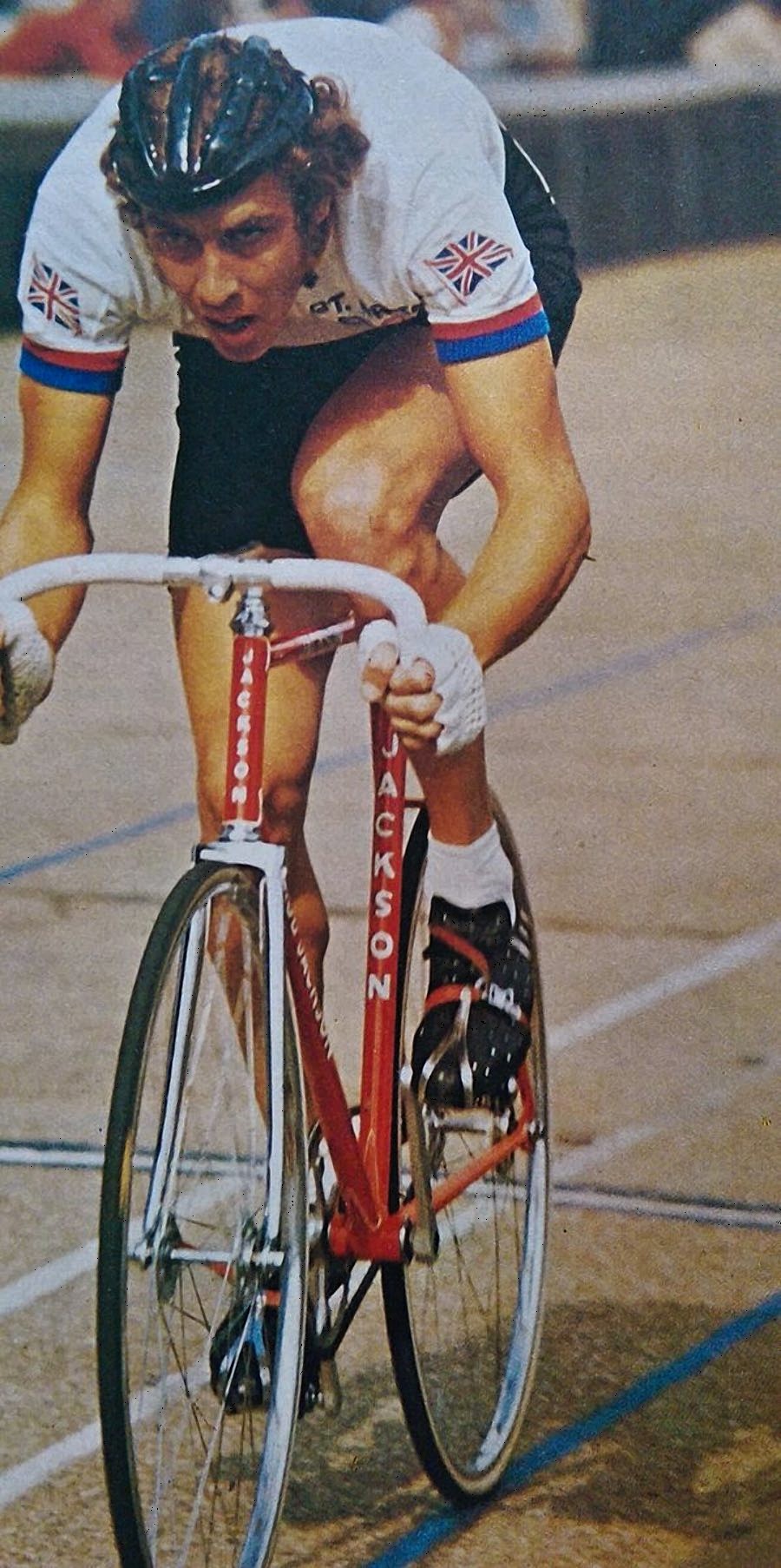
Tell us about those lovely Bob Jackson frames you used to ride.
“As an amateur we had very little support regarding equipment.
“Norman Sheil arranged the deal for Bob Jackson to help me with equipment.
“For my first Olympics in Mexico, I was given a frame and bought my tyres at half price – I was a student so had no money.
“When we were in Mexico we bought tyres off the state sponsored Polish team. You can imagine that when we saw the row of bikes that the Italian, Dutch and Polish teams had, we felt pretty inferior!
“Over subsequent years I developed a great relationship with Bob and his team in Leeds and I worked with them on design and paint jobs.
“I loved those bikes – particularly the yellow pursuit bike.”
What about your ‘defection’ from the Beeston and Bob to Ken Bird’s team?
“I joined Beeston RC when I was 13 years old. I used to go on club runs and it developed my love of riding a bike. We had great fun and the sprints that we had developed my competitiveness.
“It was in 1975 that I joined Ken Bird, at a time when I was moving from Nottingham to the South and it was a natural progression to join a sponsored team, something that Beeston RC couldn’t offer.
“Ken gave me great support and later that led to sponsorship from Saba.
“But I have a great affection for the Beeston RC and I am a life member.”
You turned pro in ’78 at 30 years-of-age – why pro and why then?
“I felt that I had achieved everything that I could achieve as an amateur and by turning pro, it would give me new motivation and new goals to aim for.”
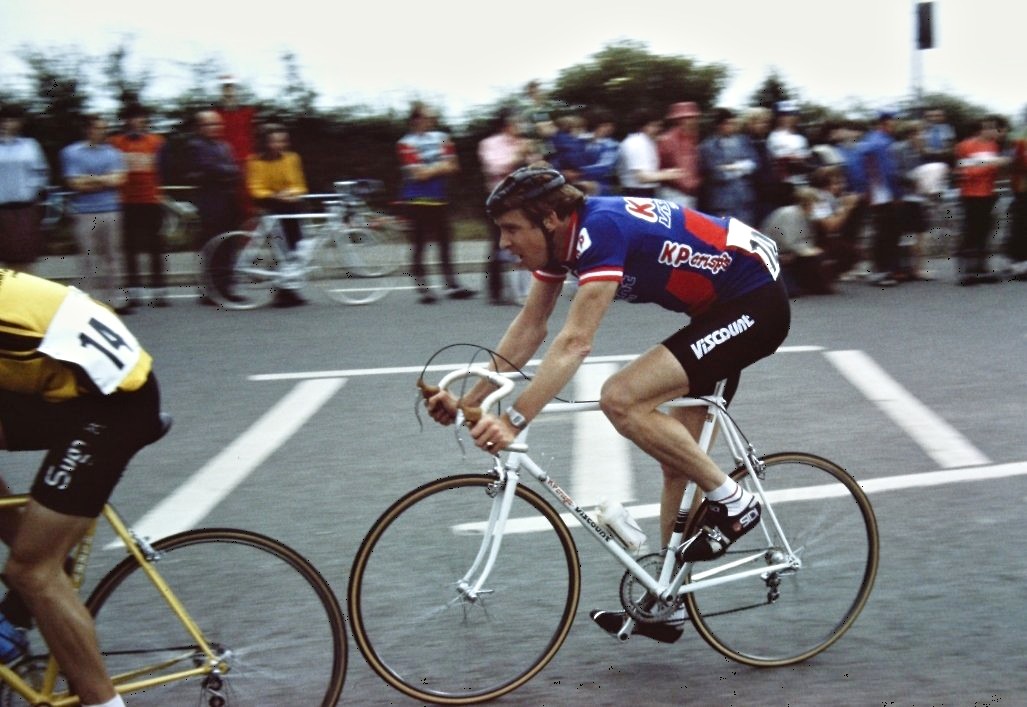
How was your acceptance by the pros?
“The British pro scene at the time was thriving and they really welcomed me into their ranks.
“I was delighted to attract a sponsor from outside the sport (KP Crisps) and hoped that it would attract more sponsors into the sport.
“It gave me the chance to ride against riders that I had admired from my junior days, such as Hugh Porter, Sid Barras and Keith Lambert.
“I loved the town centre criteriums – taking the sport to the public.”
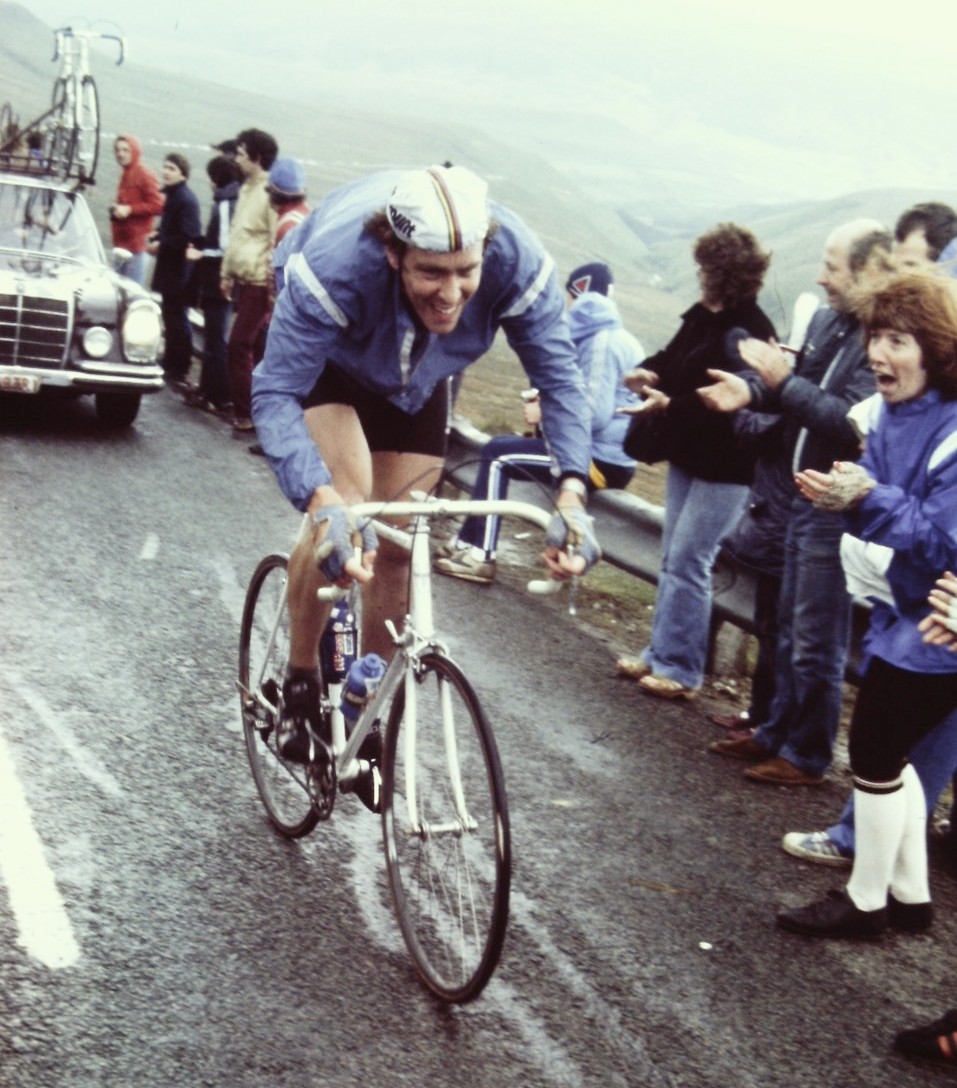
You won 25 national track titles across seven disciplines, is there a favourite?
“My first title was the 1969 Pursuit, so that was special – Norman Sheil presented me with the jersey and that meant a lot.
“Obviously the Pursuit titles were important to me – probably me most satisfying was the Pro Pursuit when I beat Ian Banbury in the final (Ian had beaten Steve Heffernan in the semi). Ian was very talented and probably never reached his full potential.
“My most bizarre and most satisfying was my last – the 1982 Motor Paced. I had never ridden behind the big motors before so it was a challenge. I had planned to do some training behind the motors but before I could, I had a crash and broke my collarbone.
“So the very first time that I had ever ridden behind the big motors was the Championship itself.
“I instructed my pacer to give me a steady ride while I got used to it, which he did. Paul Gerrard and the late Roy Cox battered it out at the front while I bided my time.
“I just went faster and faster and in the later stages went passed them both, we covered 70km in the hour.”
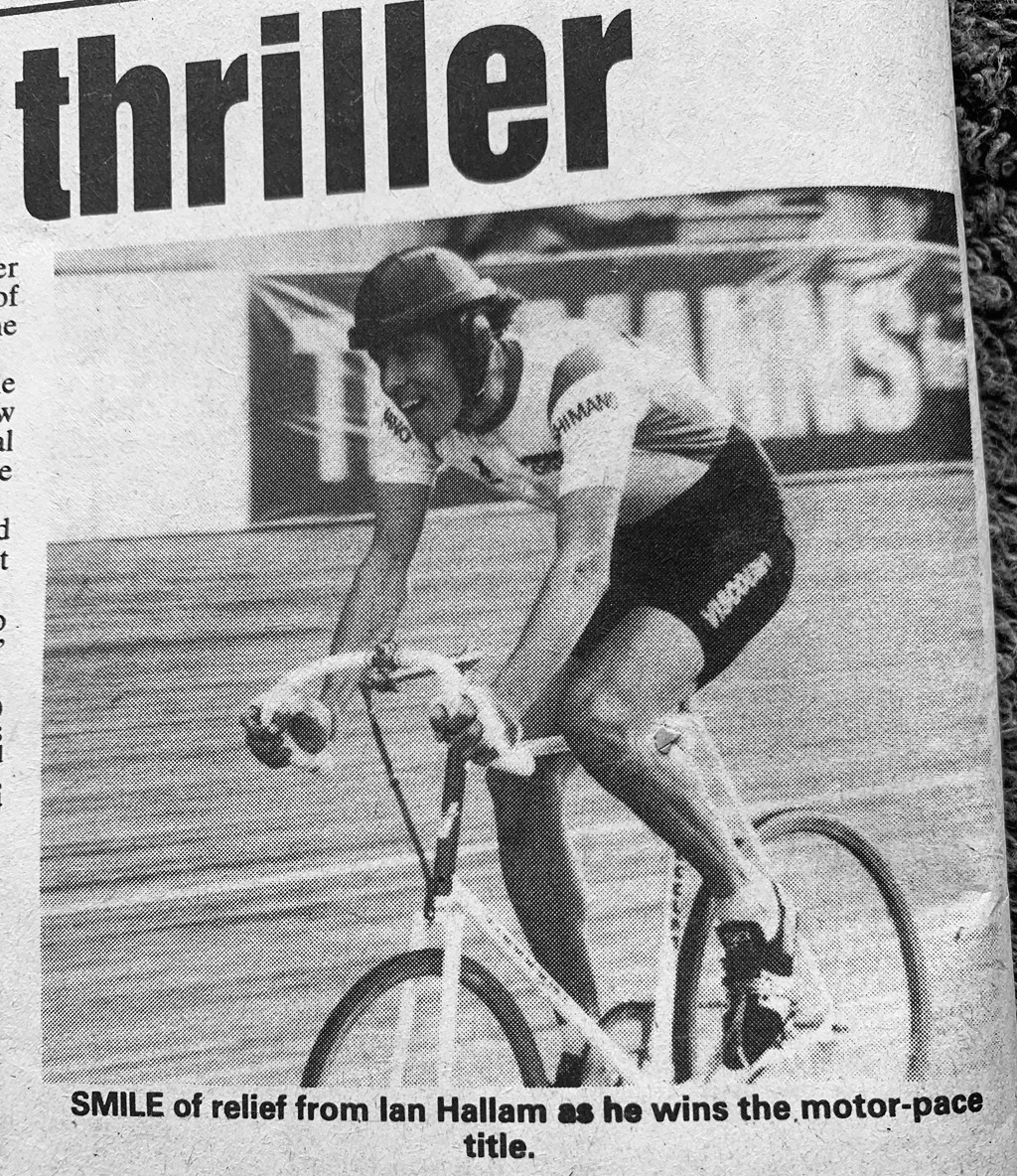
Why windsurfing after you stopped racing – and how successful were you?
“Windsurfing just started after I retired from cycling and it was a bit of fun down at the beach on Hayling Island.
“I loved it.
“But before long I started to race and became very competitive. I started winning local races, then started doing the National series.
“I loved the challenge of understanding tactics, tides, wind shifts, sail design and sail set-ups.
“I went on to finish 12th, 8th and then 5th in the World Championships.”
The Masters comeback: how many titles and I believe there was a memorable battle with Danny Clark involved?
“I won 15 Masters World Championships.
“The most satisfying were the two UCI Road Championships in St Johann Austria (I also won two ICF Road Champs).
“My most satisfying was my last year, 2002 when I won the Road title and all four track titles; Sprint, 500 metre Time Trial, Points Race and Pursuit.
“Yes, my most memorable was the race against Danny Clark. I hadn’t raced a Pursuit against him since the 1970 Commonwealth Games, decades before.
“I had crashed three weeks before and broken three ribs, which made training very painful.
“I rode against Danny in the final and it was probably my best ever Pursuit; there had been just tenths of a second between us in qualifying and it was my only chance that year of winning a title. Danny had been dominant in the other events but I won the final by 200th second (half a wheel).”
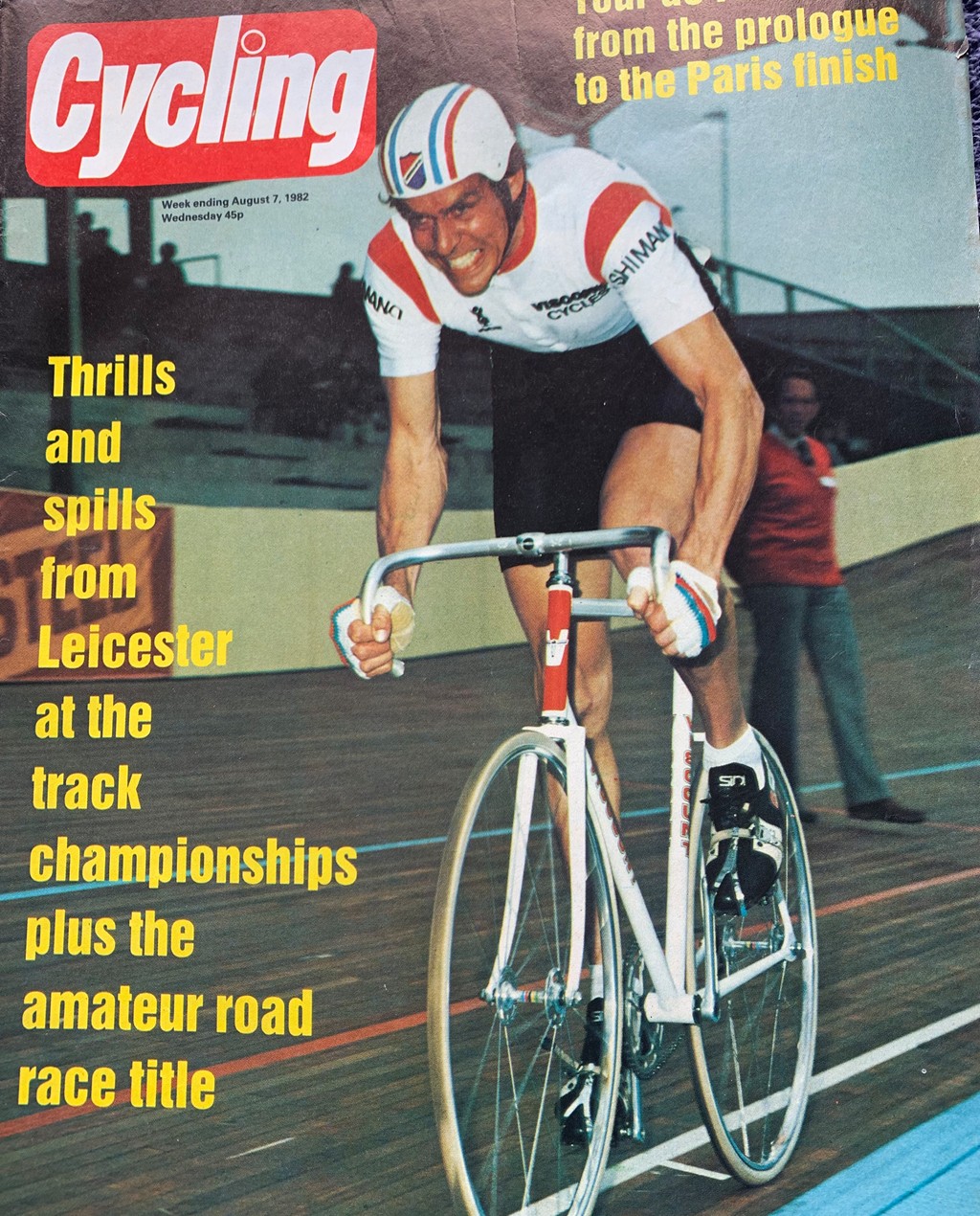
Your career highlight?
“In highlight it was probably 1970 with the Commonwealth gold and World silver.
“And the 1972 Olympic bronze.”
Any regrets?
“I sometimes wonder what I could have achieve if I’d have had some time out of dentistry and turned pro on the continent.
“To have perhaps ridden the Tour de France for instance.
“I sometimes wonder what I could have achieved if I was born in this era.
“I always lacked self-belief and with the support now, perhaps I could have believed more that I was capable of winning the biggest championships.
“But I have great memories, I travelled the world and made great friends, and that’s more important than any achievement.”
An over-used word but completely appropriate here. We’re honoured to have spoken to a British cycling LEGEND.
Have a look at Ian’s extensive palmarès.
With thanks to John Pierce of PhotoSport International UK USA Asia for the use of his image.



